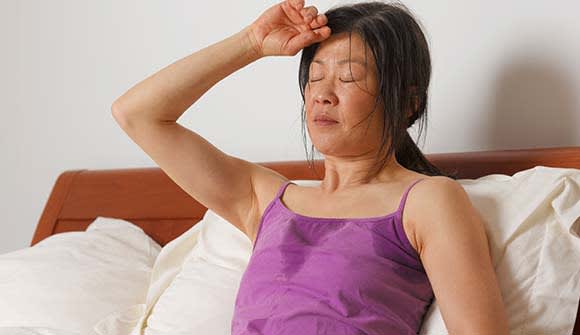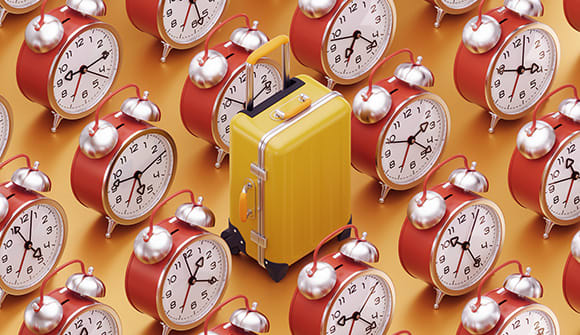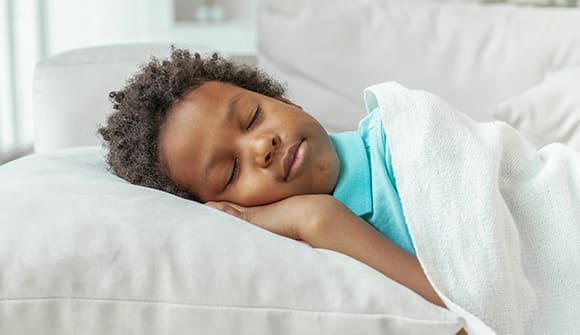Hot all night?
Why you sweat while you sleep.
Article Date:

Tossing and turning at 3 am is never fun, but add being drenched in sweat and you may start dreading bedtime altogether.
Hyperhidrosis – excessive sweating unrelated to heat or exercise – is a common complaint, explained Peter Nassar, MD, a sleep medicine specialist with Baptist Health’s Sleep Center.
“On average, 24% of patients reported night sweats in the past month and about half described it as severe," he said.
Night sweats could indicate an infection
Night sweats can happen any time of year and they’re not always a sign of merely being overheated. Sometimes, they’re a symptom of an underlying medical condition.
If you’re experiencing night sweats, it’s important to check whether you also have an elevated temperature.
“When fevers are occurring regularly with night sweats, infection or serious illness need to be considered. The most common associated malignancy is lymphoma,” Dr. Nassar said. “Infections that may cause night sweats include tuberculosis, HIV, and COVID-19.”
Other common causes of nighttime sweating
If infection or cancer have been ruled out, there could be other medical causes. Dr. Nassar explained four of the most common:
1. Menopause: For women who complain of wilting under the covers, consider age and menopausal status. You may have night sweats and hot flashes, which can disturb your sleep. Hormone replacement therapy may be effective, but the risks and benefits must be weighed, so consult your primary care physician or OB/GYN.
2. Endocrine issues: There are a few disorders that may also cause hot flashes.
“If associated with skin redness, diarrhea or palpitations, hyperthyroidism may be considered,” Dr. Nassar said. Sometimes, night sweats occur with diabetes, particularly if there is poor control of blood sugar with either hyper or hypoglycemia (high or low blood sugar).
3. Heart disease: Patients with heart disease may experience night sweats if they're experiencing insufficient blood flow during the night.
“Usually this is a time of rest and it's not an issue, but if it gets to be bothersome, you should consult your cardiologist,” Dr. Nassar said.
4. Sleep disorders: People with sleep disorders like obstructive sleep apnea (OSA) and nightmares tend to have higher rates of night sweats.
“About 35% of patients with undiagnosed OSA have night sweats at least three times a week,” Dr. Nassar said.
5. Medications: There are some medications that may cause hyperhidrosis.
“The most common are antidepressants, which lead to night sweats in approximately 10 to 15% of patients. These medications cause a generalized increase in sweating and some patients are more aware of episodes at night,” Dr. Nassar said. “Meds that modify estrogen and androgen hormone levels may also cause sweating. One example is tamoxifen, often taken for breast cancer."
When to see a doctor
If you’re having night sweats, it’s important to see a physician to make sure there isn't a serious underlying medical cause, Dr. Nassar stressed.
“About half the time, there's no real reason. If that's the case, make sure your environment is as comfortable as possible. Consider lowering the thermostat, layering your bed covers, and using a ceiling fan for better comfort.”
Sweating at night?
If you're concerned about night sweats or other sleep issues, you can learn more and book a consult with a sleep specialist at the Baptist Health Sleep Center by calling 904.202.1632.


